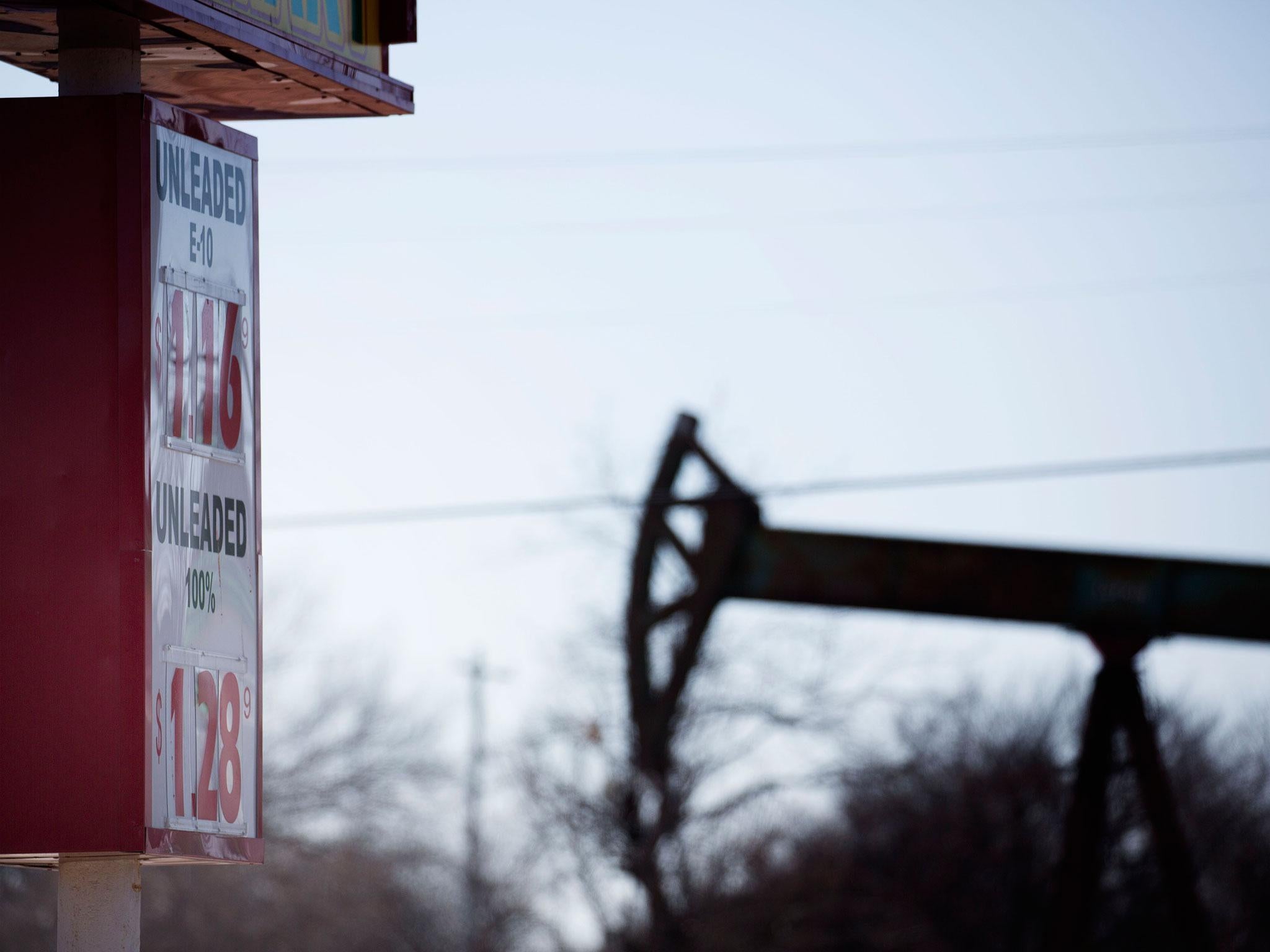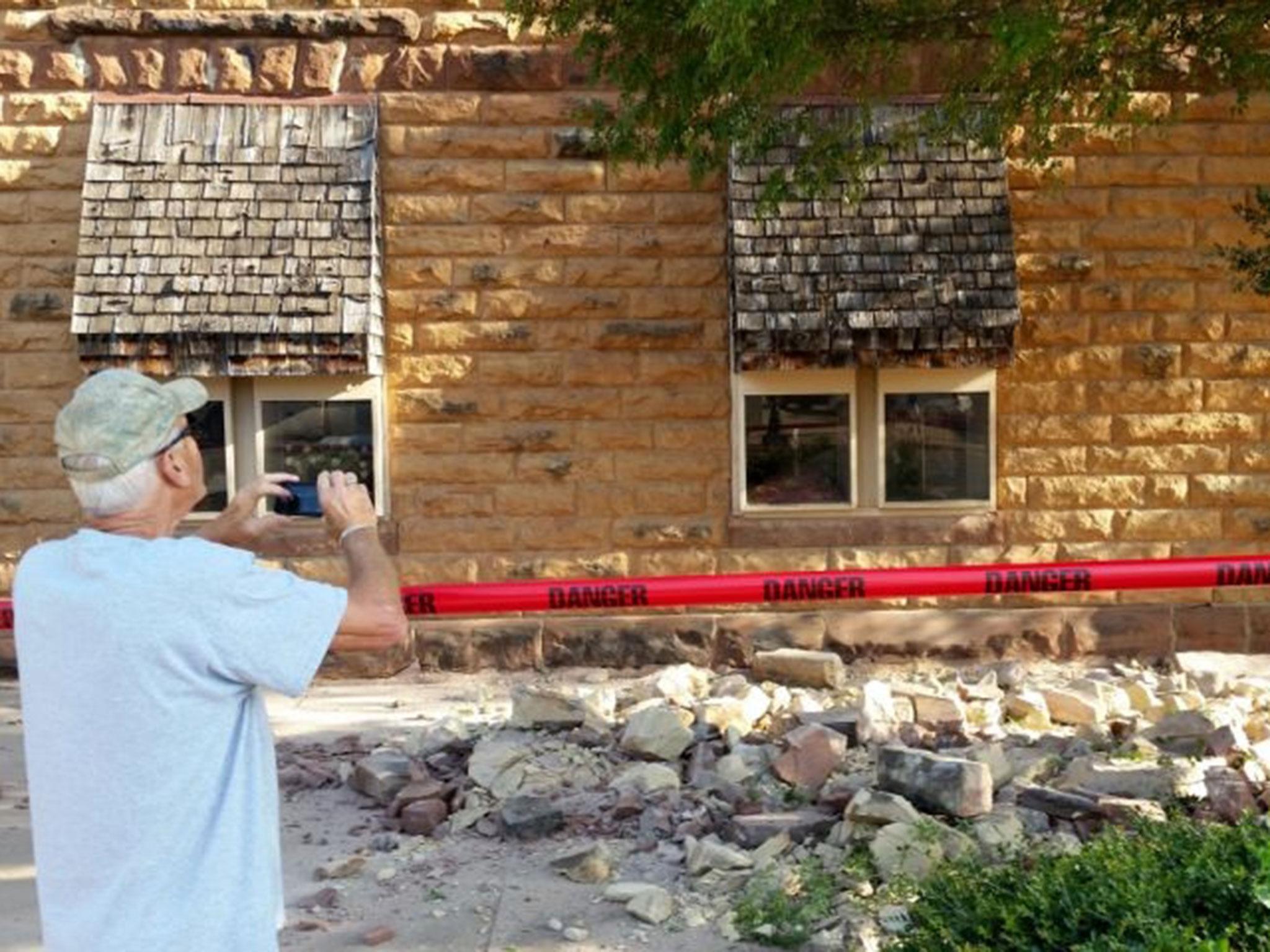Oklahoma earthquake: 37 wells ordered to shut down after scientists' warning
Increase in magnitude 3.0 or greater earthquakes linked to underground disposal of wastewater from oil and natural gas production

Your support helps us to tell the story
From reproductive rights to climate change to Big Tech, The Independent is on the ground when the story is developing. Whether it's investigating the financials of Elon Musk's pro-Trump PAC or producing our latest documentary, 'The A Word', which shines a light on the American women fighting for reproductive rights, we know how important it is to parse out the facts from the messaging.
At such a critical moment in US history, we need reporters on the ground. Your donation allows us to keep sending journalists to speak to both sides of the story.
The Independent is trusted by Americans across the entire political spectrum. And unlike many other quality news outlets, we choose not to lock Americans out of our reporting and analysis with paywalls. We believe quality journalism should be available to everyone, paid for by those who can afford it.
Your support makes all the difference.A magnitude 5.6 earthquake in Oklahoma has brought fresh attention to the practice of disposing oil and gas field wastewater deep underground.
The United States Geological Survey said the quake happened at 7.02am on Saturday, in north-central Oklahoma, on the fringe of an area where regulators had stepped in to limit wastewater disposal.
The shallow quake struck nine miles northwest of Pawnee, where there were no immediate reports of injuries. Damage in the town appeared to be minor.
An increase in earthquakes in Oklahoma that are magnitude 3.0 or greater has been linked to underground disposal of wastewater from oil and natural gas production.

Saturday's earthquake led the Oklahoma Corporate Commission to order 37 wells in an area around the epicentre of the quake of 514 square miles to shut down within seven to 10 days.
"All of our actions have been based on the link that researchers have drawn between the Arbuckle disposal well operations and earthquakes in Oklahoma," spokesman Matt Skinner said Saturday.
"We're trying to do this as quickly as possible, but we have to follow the recommendations of the seismologists, who tell us that everything going off at once can cause an [earthquake]."

The commission has previously asked producers to reduce volumes of wastewater disposal.
Oklahoma's economy is heavily dependent on energy production, which accounts for one in every four jobs in the state.
Geologists in Oklahoma have documented links between increased seismic activity in the state and the injection of wastewater from oil and gas production into the ground, according to a report from the Oklahoma Geological Survey.
Although the drilling technique known as hydraulic fracturing, or "fracking", also generates large amounts of wastewater, the report said fracking is responsible for only a small percentage of the total volume of injected wastewater.
Additional reporting by agencies
Join our commenting forum
Join thought-provoking conversations, follow other Independent readers and see their replies
Comments